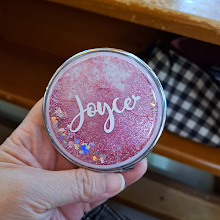What is communication?
According to SkillsYouNeed, communication is defined as the act of transferring information from one place, person or group to another.
However, communication is more than just the transmission of information (message) because whenever there is an act on information transfer (from sender to recipient), it also includes our emotions, cultural situation, medium used to communicate, etc.
Moreover, there are also different categories of communication: verbal (spoken or face-to-face), non-verbal (body language), and written communication.
What then is effective communication?
I came across this interesting quote which is shared on the internet.
I used to think communication was key until I realized comprehension is. You can communicate all you want to someone, but if they don't understand you, it won't reach them the way you need it to. - Unknown
Now, this quote sparked quite a lot of conversations.
The question is this: If the person who is communicating thinks he or she is communicating (in his/her understanding of what communication is), but he/she is not understood by the other party (hence, no comprehension on the recipient side), is there communication?
Talking alone is not communicating. If there is no understanding or comprehension (decoding) and response, safe to say, there is no communication.
Therefore, effective communication is more than just talking and exchanging information. It is also about giving context and understanding the emotion and intentions behind the information that you want to transfer.
Effective communication power tips
Here are four power tips for effective communication.
1. Non-verbal cues are just as important as verbal cues
How we say something is more impactful than what we say. Non-verbal cues such as eye contact, body language, tone of voice, facial expressions are powerful communication tools. (Nonverbal Communication and Body Language, HelpGuide.org)
2. Hear what is not said
The most important message is often not what is heard when one speaks, but what is not being said in that conversation. Always ask questions with that in mind!
The most important thing in communication is to hear what is not said. - Peter Drucker
3. Always provide as much context as you can
Context is made up of the parts of communication that influence the meaning of a message. Always provide as much context as you can in your conversations. (The Hidden Power of Context, Sam Sommers)
4. Use simple and concise words
Keep it simple. Be confident, and don't over-explain. Become self-aware of jargon and acronyms. Eliminate filler words or phrases, and use analogies. (5 Simple Tips to Help You Speak Clearly and Concisely, Matthew Royse)
I find this quote amusing and somewhat summarizes this topic well.
The most important communication skill is knowing when to shut up. - Morgan Housel
My takeaway
After so many years, I have come to realize that developing communication skills is a lifelong learning journey that requires one to put down their ego, make mistakes, learn from mistakes, piss people off, identify the trigger or gap, close the gap, and repeat.
Practice makes perfect. Unless you stay in a cave, we can't run away from communicating, online or offline. We also can't rely on ChatGPT for perfect scripts when we reply work or business emails. We also can't avoid people around us.
I guess, unless AI completely replaces sentience (this is purely my personal opinion), we have a lifetime to learn to communicate.






















No comments